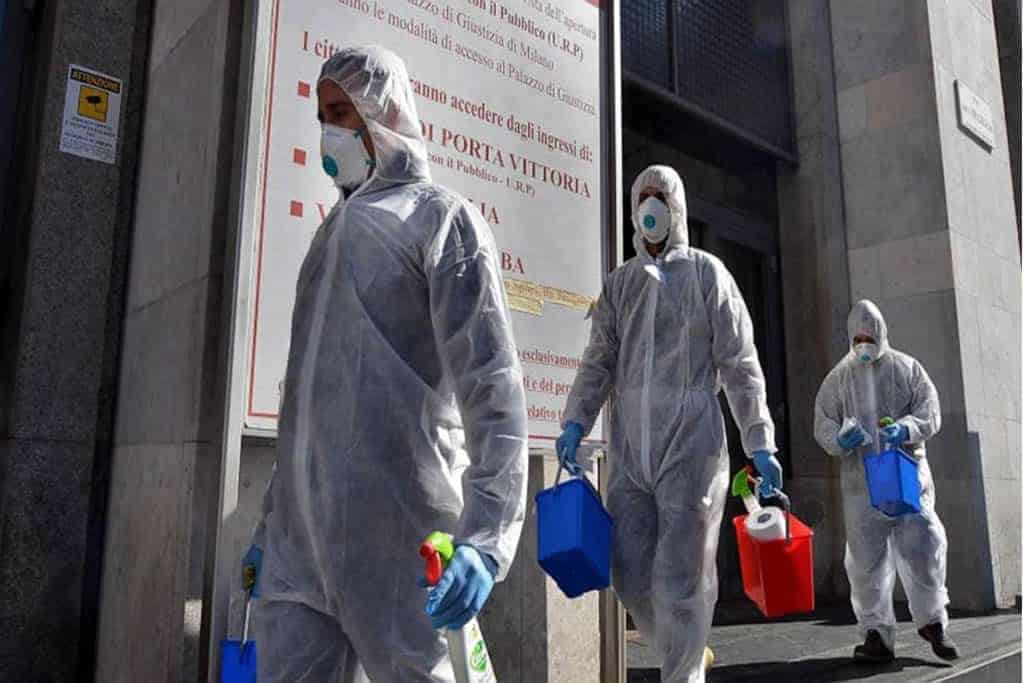
COVID-19, latest measures adopted by EU
Last updated on February 28th, 2023 at 07:42 am
Citizens around the world are worried. For their health, for their families, for their jobs, due to coronavirus. The pandemic is severely testing European governments and economies, and has pushed the European Union to move quickly to protect its international credibility. The Council of EU welcomed the World Health Assembly’s adoption on the importance of a collective response to the COVID-19. The 195 Member States of the World Health Organisation (WHO) have convened at the Assembly in unprecedented times, showing their determination to defeat the virus through collective, global action. A statement by the Council affirms, adding that the virus knows no borders, and neither should the EU response.
For Europe strengthening multilateralism is now more important than ever. The resolution underlines the importance of responding to this crisis through solidarity and multilateral cooperation under the umbrella of the United Nations. It sets out actions for every single State. For countries around the world, for the WHO and for other international actors, including civil society and the private sector. The role of equitable access to a vaccine in bringing the pandemic to an end is crucial. As a global, public health good it has to be affordable and accessible to everyone. Also, access to affordable equipment, medicines and treatments is vital. On 4 May, together with global partners, the EU launched a global pledging effort, which has so far gathered €7.4 billion from donors worldwide to ensure universal and affordable access to new solutions to detect, treat and prevent COVID-19.
Yesterday’s resolution recognises the need for engagement with the public through reliable information and the need to combat the proliferation of misinformation and disinformation. The resolution also recalls the need of an independent investigation of how this pandemic started and spread, as member States need to draw lessons from the current crisis to strengthen their global preparedness for the future. “By working together, united, and in solidarity, we will overcome this pandemic. Now is the time to work together. The health of each of us depends on the health of all of us”. The High Representative and Vice-President, Josep Borrell, and Commissioner Stella Kyriakides said in a joint press release.
As part of its emergency support package to tackle the economic impact of the COVID-19 crisis, the EU has put in place a temporary instrument to help workers keep their jobs during the crisis. According to the decision, EU member states will be able to request up to €100 billion in loans under favourable terms to help finance sudden and severe increases of national public expenditure in response to the crisis in specific areas. SURE (Support to mitigate Unemployment Risks in an Emergency) is one of the three safety nets, worth €540 billion, for jobs and workers, businesses and member states, agreed by the Eurogroup and endorsed by EU leaders. The EU is also adapting certain rules for different transport sectors to help companies and authorities cope in the extraordinary circumstances created by the coronavirus crisis. The Council adopted temporary measures enabling the extension of the validity of certain certificates and licences in road, rail and waterborne transport, and relaxing the rules on charging ships for the use of port infrastructures.
“Enabling the extension of the validity of licences and certificates will provide the flexibility and legal certainty needed to maintain our supply chains and ensure continued mobility by road, rail, sea and inland waterways, while safeguarding safety and security. The possibility of waiving port infrastructure charges will help mitigate the serious negative impact of the crisis on the shipping sector.” Oleg Butković, Croatian Minister for the Sea, Transport and Infrastructure, President of the Council, affirmed.
The regulation enabling the extension of the validity of certificates and licences will support those transport operators, individuals and national administrations that, owing to the coronavirus restrictions, are having difficulties fulfilling certain administrative formalities before the expiry of the relevant deadlines. This applies for instance to driving licences, roadworthiness tests for motor vehicles and boat-masters’ certificates. Certain periodic checks in the road, rail, inland navigation and shipping sectors will also be postponed temporarily, as they may not be feasible in current circumstances.
The text takes into account the fact that, given the differences in the spread of the pandemic throughout Europe, some member states are able to continue to deliver specific licences or certificates, while others -like Italy, France and Spain – find it difficult or impossible to do so. However, even if a country continues to issue licences itself, it will need to accept licences originating in another member state which has used the possibility of extending their validity. This will help ensure the smooth functioning of the internal market and continued cross-border activities.
On Wednesday, the Council also adopted a decision to provide up to 3 billion euros of macro-financial assistance to ten enlargement and neighbourhood partners to help them cope with the economic fallout of the COVID-19 pandemic. According to the text of the decision, financial assistance will be provided in the form of loans on highly favourable terms and allocated as follows: €180 million for Albania; €250 million for Bosnia-Herzegovina; €150 million for Georgia; €200 million for Jordan; €100 million for Kosovo; €100 million for Moldova; €60 million for Montenegro; €160 million for the Republic of North Macedonia; €600 million for Tunisia and €1200 million will be allocated to Ukraine. With the support from the International Monetary Fund, the funds will help enhance macroeconomic stability and create space to allow resources to be allocated towards protecting citizens and to mitigating the negative socio-economic consequences of the coronavirus pandemic.\
Chinese troops are increasingly transgressing into Indian territories: Report




